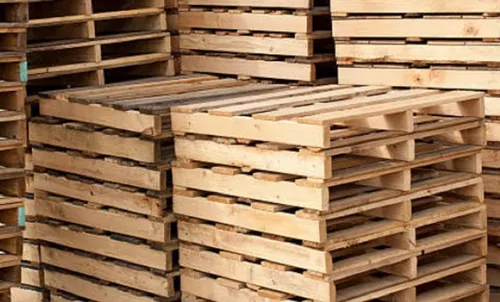
In a global economy fueled by trade and rapid logistics, one often overlooked but essential component is the pallet. These simple yet indispensable platforms are the foundation of modern supply chains, ensuring goods are transported efficiently and safely. Behind every successful shipment lies the work of pallet manufacturers, a sector that blends craftsmanship, engineering, and evolving technology to support industries around the world.
What Do Pallet Manufacturers Do?
Pallet manufacturers design, build, and supply pallets to businesses across various sectors, including retail, agriculture, pharmaceuticals, food and beverage, and manufacturing. Pallets can be made from wood, plastic, metal, or composite materials, depending on the specific needs of the client.
The most common type remains the wooden pallet due to its cost-effectiveness, strength, and ease of recycling or repair. However, plastic pallets are gaining popularity for their durability and suitability in hygienic environments such as pharmaceuticals or food processing.
The Manufacturing Process
The pallet manufacturing process typically involves several key steps:
-
Material Selection: Most wooden pallets are made from softwoods like pine or hardwoods like oak, selected based on availability and intended use.
-
Cutting and Assembly: Wood is cut into standard or custom sizes, and pallets are assembled using nails or specialized fasteners. Automated machines are increasingly used for precision and speed.
-
Heat Treatment: To comply with international regulations (like ISPM 15 for export), wooden pallets often undergo heat treatment to eliminate pests.
-
Quality Control: Each pallet is inspected for durability and adherence to industry standards before being shipped out.
Trends and Innovations
The pallet industry is adapting to technological advancements and changing environmental regulations:
-
Sustainability: With growing pressure to reduce waste, many manufacturers are turning to recycled materials or offering pallet recycling and refurbishment services.
-
Smart Pallets: Some companies are integrating RFID tags and IoT technology to create smart pallets that track inventory in real time.
-
Automation: Robotic systems and automated production lines are becoming more common, enhancing productivity and reducing labor costs.
-
Customization: As industries diversify, demand for specialized pallet designs for unique products has grown, prompting manufacturers to offer more tailored solutions.
Challenges Facing the Industry
Despite its essential role, the pallet manufacturing industry faces several challenges:
-
Raw Material Costs: Fluctuations in lumber prices can significantly impact profitability, especially for smaller manufacturers.
-
Labor Shortages: Like many sectors, finding skilled workers is a growing concern.
-
Regulatory Compliance: Navigating international shipping regulations and environmental standards can be complex and varies by country.
-
Sustainability Pressure: Manufacturers are under increasing scrutiny to minimize their environmental footprint, pushing them toward greener practices.
The Future of Pallet Manufacturing
As global trade continues to evolve, so too will the pallet manufacturing industry. The future likely lies in more sustainable practices, increased automation, and smarter products. Collaboration with logistics providers and tech companies will be key to innovating and staying competitive.
Though they may seem humble in appearance, pallets are the silent workhorses of the supply chain. And the manufacturers who produce them—adapting constantly to meet global demands—are a vital part of keeping goods moving around the world.